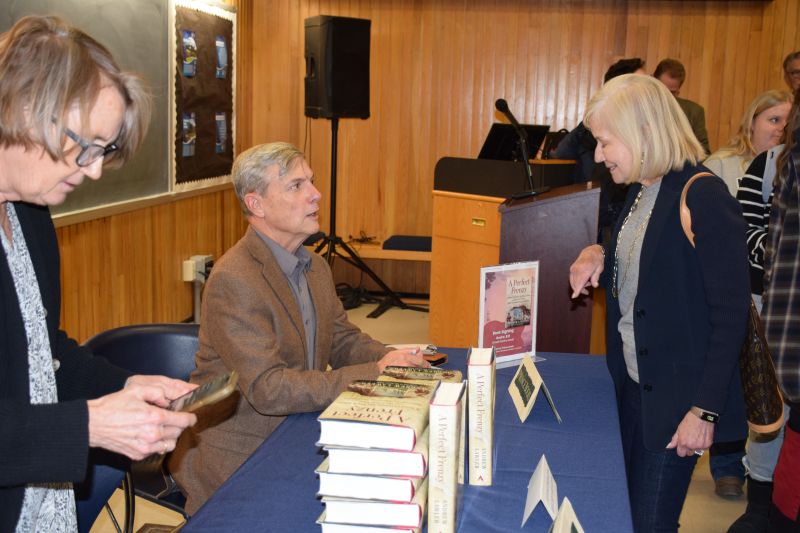Share this Story
A Perfect Frenzy
Author Andrew Lawler shared insights from his newest book on the crisis that spurred the American Revolution
University News | November 17, 2025

Lawler brought this turbulent chapter of history to life during a November 13 lecture in Blocker Auditorium. The campus community filled the venue for his compelling retelling of the early Revolution in Virginia—a narrative often overshadowed by events in Boston and Philadelphia. The program was part of the Robert Nusbaum Center’s 2025 fall series.
His newest book, “A Perfect Frenzy: A Royal Governor, His Black Allies, and the Crisis That Spurred the American Revolution” (Atlantic Monthly Press, 2025), reveals how the struggle for Black freedom helped propel the colonies toward independence. Lawler uncovers the complex alliances, political fears, and acts of resistance that shaped the conflict.
“The idea that the Patriots burned their own city was absurd at the time,” Lawler noted. “It’s a history that deserves to be brought into the light. There were people on both sides who valued freedom—and those are the people we should be commemorating.”

Lawler is also the author of the national bestseller The Secret Token about the lost colony of Roanoke and the award-winning Under Jerusalem. As a journalist, he has written more than a thousand articles for publications including The New York Times, The Washington Post, National Geographic, and Smithsonian. He currently serves as a contributing writer for Science and a contributing editor for Archaeology.
Learn more about the Robert Nusbaum Center at VWU.


